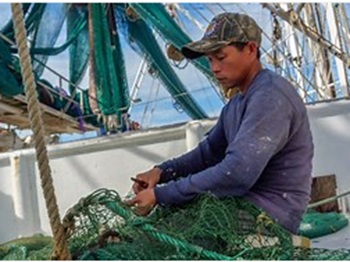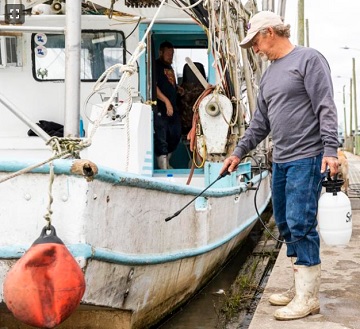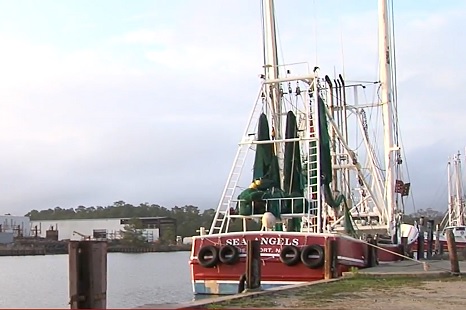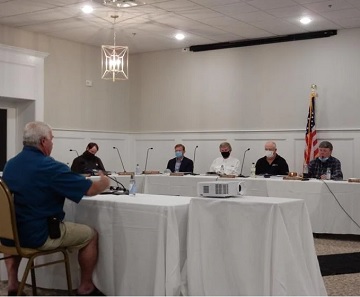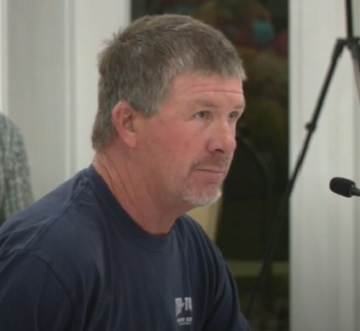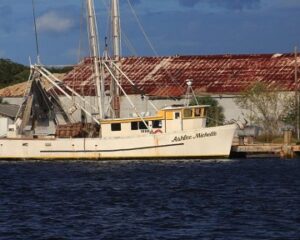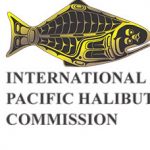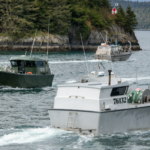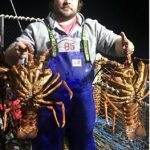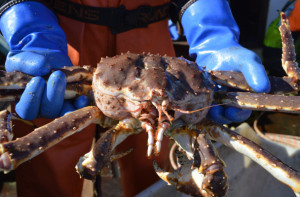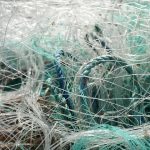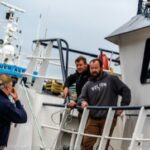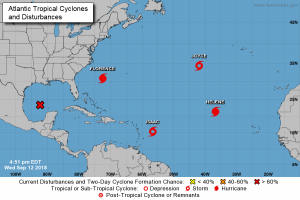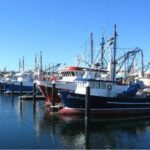You don’t see shrimp trawlers working the sea like you once did. You don’t see them coming in with their photogenic outriggers up. To be clear, trawlers still work the sea but nowhere in numbers like they once did.,, Times were you’d see them out at sea working, nets out, capturing shrimp. Beachgoers would see several trawlers with nets up coming home with a haul. Beachgoers and locals alike knew where to get fresh-caught shrimp and it was no marketing spin. It was the real deal, but those days are slipping away. Regulations, pollution, imports, inaccessible shrimping grounds, mariculture, maintenance costs, aging fleets, and other factors have put the hurt on the shrimping industry. >click to read< 07:36
Tag Archives: shrimpers
Fewer shrimpers are hitting the water in North Carolina
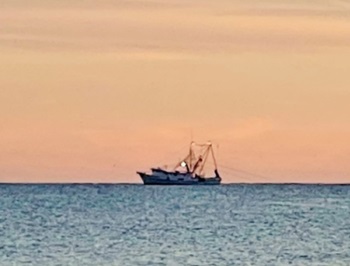 You remember what Forrest Gump says after he becomes a shrimp boat captain: “Shrimping tough! “Well, that’s certainly true in North Carolina, where shrimp is the second-most commercially harvested seafood. The total dockside value of shrimp in the state in 2022, what seafood dealers pay before it gets sold wholesale, was about $10 million. That’s down from about $30 million in the 1980s and 1990s. The slip in value has led to a decline in the number of licensed shrimpers hitting the water, to the lowest on record in 2022. Reporter Johanna Still looked into what’s behind it all. more, >>listen or read<< 10:55
You remember what Forrest Gump says after he becomes a shrimp boat captain: “Shrimping tough! “Well, that’s certainly true in North Carolina, where shrimp is the second-most commercially harvested seafood. The total dockside value of shrimp in the state in 2022, what seafood dealers pay before it gets sold wholesale, was about $10 million. That’s down from about $30 million in the 1980s and 1990s. The slip in value has led to a decline in the number of licensed shrimpers hitting the water, to the lowest on record in 2022. Reporter Johanna Still looked into what’s behind it all. more, >>listen or read<< 10:55
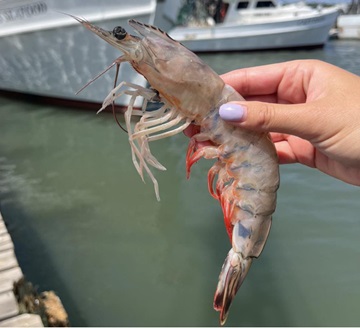
‘Catastrophic crisis’: Imported shrimp flood US market
Foreign shrimp imports are overwhelming the country’s inventories of shrimp and driving market prices for locally sourced shrimp to record lows, prompting widespread calls from elected officials and organizations throughout southern Atlantic and Gulf Coast states for the federal government to declare a fishery resource disaster. Governors of coastal states from North Carolina to Florida to Texas are being pressed to ask U.S. Commerce Secretary Gina Raimondo to determine a fishery resource disaster for the South Atlantic and Gulf of Mexico shrimp fishery. In what one North Carolina coastal county’s board of commissioners refer to as an “unprecedented catastrophic crisis,” shrimpers are struggling to maintain operations because they’re making substantially less for their catch while paying historically high fuel prices and other inflation-driven costs. Shrimpers are also being forced to dock their freezer boats, or vessels with onboard freezers, because they can’t move their product in a market flooded with frozen shrimp from overseas. >>click to read<< 09:40
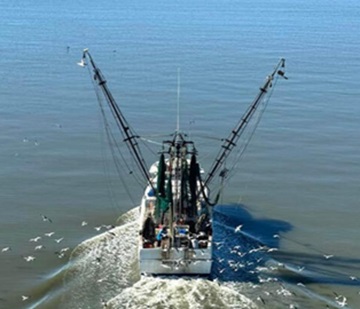
Wild-Caught Shrimp: South Carolina’s Long History
There’s something positively serene about watching shrimp boats trawling our coastal waters. Shrimping has been an important part of our culture in Beaufort and all of South Carolina since long before anyone can remember. In fact it’s been a labor of love for fishermen since before the Civil War and is still alive and kicking today with a thriving market served by dedicated commercial fishermen in the Palmetto State. Shrimp are America’s most valuable and most popular seafood, according to the NOAA Fisheries, and SCDNR tells us that South Carolina is home to three species of shrimp: brown shrimp, white shrimp, and pink shrimp. Brown and white shrimp are more common than pink shrimp, but all three taste the same. >>click to read<< 20:47
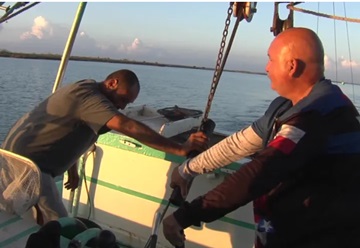
Texas: Bay Shrimpers
Just about every day of the week you can find Vito Sandoval and Ricardo Rodriguez plying the waters of the Brownsville ship channel dragging their net to provide local bait stands with live shrimp. With the sun just clearing the horizon, they are on the water and getting ready to haul in their first drag of the day. They are an efficient team and while Rodriguez expertly separates the shrimp from “bycatch,” Sandoval returns to the Captain’s chair, where he is right at home as bay shrimping is a family tradition. “My dad did it for many, many years. He is the one that got me going around 12 years old that’s when I started coming with him on the weekends and the summertime, and I loved it,” said Vito Sandoval. Video, photos, >>click to read<< 09:06
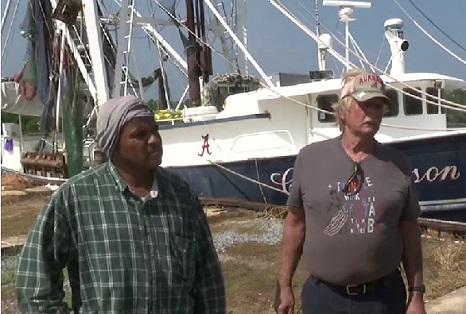
Hard-hit Bayou La Batre shrimpers say they need all the help they can get
Shrimpers say this is the best time of the year to harvest the crustaceans, but most of the shrimp boats in this seafood capital are tied up on the docks these days. James Mason, who has fished his entire life, said it simply isn’t profitable to go hunting for shrimp. “Haven’t been out in a year,” he said. The Wilmer resident said that to make ends meet, he has been working at a shipyard not far from where the Capt. Mason sits idle. He said he even tried working for a month on an oyster boat in New Jersey. Sen. Tommy Tuberville (R-Auburn) last month offered legislation that would create a task force to monitor foreign subsidies of shrimp and other agricultural products. He said he hopes that would greatly speed up enforcement. “We need some help, and I’m talking about urgent help,” he said. “If we don’t get some help, I don’t’ know if we’ll survive.” Added Mason: “Everybody in this bayou is hurting. Everybody. It doesn’t matter who it is.” Video, >>click to read<< 11:46
Louisiana shrimpers, lawmakers unite to protect domestic fisheries as season begins
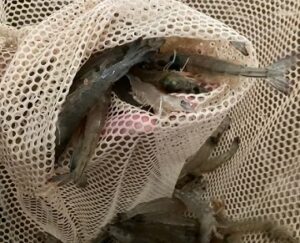 The Louisiana Shrimp Association joined in a letter that said the influx of imported shrimp has proven especially problematic for domestic harvesters. Nineteen other allied organizations and companies, representing more than 4,000 seafood businesses of the U.S. Gulf of Mexico and South Atlantic region also signed onto the letter. “Despite rising costs for fuel and labor, the price of Gulf shrimp, for example, has not increased since 1980. For the past 40 years, the average dockside price of Gulf shrimp has ranged from $1.50-$2.00 per 2 pounds,” the letter said. The Louisiana Legislature on June 6 presented House Concurrent Resolution 113 to the Secretary of State. The resolution urges Congress to ban the import of shrimp and crawfish from outside the United States. >click to read< 11:24
The Louisiana Shrimp Association joined in a letter that said the influx of imported shrimp has proven especially problematic for domestic harvesters. Nineteen other allied organizations and companies, representing more than 4,000 seafood businesses of the U.S. Gulf of Mexico and South Atlantic region also signed onto the letter. “Despite rising costs for fuel and labor, the price of Gulf shrimp, for example, has not increased since 1980. For the past 40 years, the average dockside price of Gulf shrimp has ranged from $1.50-$2.00 per 2 pounds,” the letter said. The Louisiana Legislature on June 6 presented House Concurrent Resolution 113 to the Secretary of State. The resolution urges Congress to ban the import of shrimp and crawfish from outside the United States. >click to read< 11:24
Federal Appeals Court upholds ruling for shrimp trawlers in Clean Water Act dispute
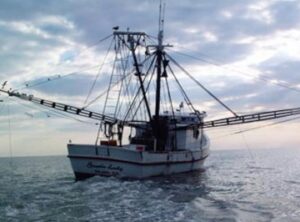 The 4th US Circuit Court of Appeals has affirmed a lower court decision favoring shrimp trawlers in a dispute tied to the Clean Water Act. A three-judge appellate panel agreed unanimously with the dismissal of legal complaints against the trawlers. “Fisheries Reform Group alleges that shrimp trawlers operating in North Carolina’s Pamlico Sound are violating the Clean Water Act by engaging in two types of unpermitted activity: throwing bycatch overboard and disturbing sediment with their trawl nets. But these activities do not violate the Clean Water Act,” wrote Appeals Court Judge Julius Richardson. The seven named defendants in the case are commercial shrimpers in Pamlico Sound. They harvest shrimp by dragging trawl nets along the ocean’s floor. >click to read< 07:58
The 4th US Circuit Court of Appeals has affirmed a lower court decision favoring shrimp trawlers in a dispute tied to the Clean Water Act. A three-judge appellate panel agreed unanimously with the dismissal of legal complaints against the trawlers. “Fisheries Reform Group alleges that shrimp trawlers operating in North Carolina’s Pamlico Sound are violating the Clean Water Act by engaging in two types of unpermitted activity: throwing bycatch overboard and disturbing sediment with their trawl nets. But these activities do not violate the Clean Water Act,” wrote Appeals Court Judge Julius Richardson. The seven named defendants in the case are commercial shrimpers in Pamlico Sound. They harvest shrimp by dragging trawl nets along the ocean’s floor. >click to read< 07:58
Donalds introduces bill, The FISHES Act, to help fisheries recover faster from disasters like Hurricane Ian
 Crabbers, shrimpers and net fishermen all took it on the chin after Hurricane Ian, with some completely out of business, and others struggling to rebuild storefronts, docks and boats. Painfully scarce: government aid dollars, despite a federal disaster declaration. Reviews, red tape and pending inspections make for a long, dragged-out process that takes years to work – if it does at all, says commercial fishing Captain Casey Streeter. The bipartisan legislation spearheaded by Naples Republican Congressman Byron Donalds would “improve the federal regulatory process associated with the allocation of fishery disaster relief (and) expedite the distribution of federal disaster relief following official fishery disasters.” This isn’t just a Florida problem. Nationwide, there are 27 such disaster declarations. “It could be salmon or cod … situations where fisheries are in trouble,” Streeter said, though he’s careful to add the legislation would be a hand-up – “just to get things stabilized – not a hand-out.” >click to read< 07:53
Crabbers, shrimpers and net fishermen all took it on the chin after Hurricane Ian, with some completely out of business, and others struggling to rebuild storefronts, docks and boats. Painfully scarce: government aid dollars, despite a federal disaster declaration. Reviews, red tape and pending inspections make for a long, dragged-out process that takes years to work – if it does at all, says commercial fishing Captain Casey Streeter. The bipartisan legislation spearheaded by Naples Republican Congressman Byron Donalds would “improve the federal regulatory process associated with the allocation of fishery disaster relief (and) expedite the distribution of federal disaster relief following official fishery disasters.” This isn’t just a Florida problem. Nationwide, there are 27 such disaster declarations. “It could be salmon or cod … situations where fisheries are in trouble,” Streeter said, though he’s careful to add the legislation would be a hand-up – “just to get things stabilized – not a hand-out.” >click to read< 07:53
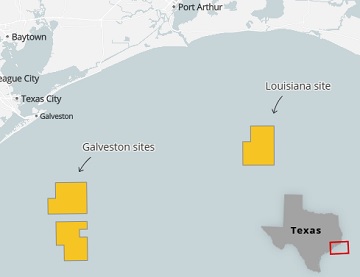
First offshore wind leases off the Texas coast offered for bidding
The federal government on Thursday announced the first-ever chance for companies to lease areas in the Gulf of Mexico to build wind farms, including two parcels roughly 30 miles off the Texas coast near Galveston. Renewable energy developers will likely compete for the leases with firms that are better known for another kind of offshore construction: Oil and gas giants such as Shell and TotalEnergies qualified to join the bidding. Leaders of the traditionally fossil fuel-focused companies say their climate goals make investing in offshore wind critical. Both businesses are already involved in developing wind power in the Atlantic, including near New Jersey, New York and Massachusetts. >click to read< 10:02
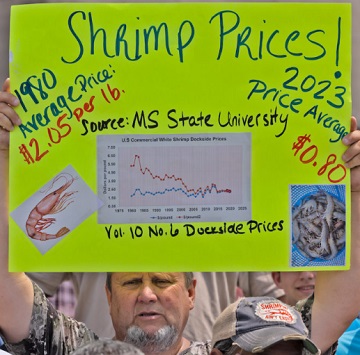
Louisiana shrimpers are worried imports will sink them for good
It’s the start of brown shrimp season in Louisiana, and instead of a fleet of boats heading out to trawl nearby waters, fishermen have gathered like an armada at the Louisiana State Capitol to tell lawmakers that the industry is in dire straits. Hundreds of longtime shrimpers tied up their boats and held a rally at the Capitol in recent weeks in a rare show of unity from all factions of the volatile shrimping industry. Shrimpers, dock owners, and processors have for decades pointed fingers at each other for driving prices down. But now, they’re all protesting against the unwanted competition affecting their livelihoods: imported shrimp. Photos, >click to read< 16:34
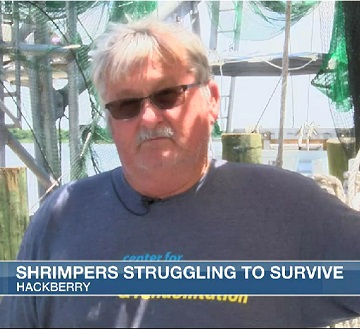
Shrimpers in Louisiana struggling to survive off low prices
Last week, shrimpers from across Louisiana held a rally at the State Capitol, blaming foreign imports for overcrowding the market. “You’re not breaking even right now, you’re in the red. Matter of fact, you’re below the red. I just don’t know what else to do,” Hackberry shrimper Kenny Kellum said. The abundance of foreign imported shrimp has caused prices to plummet in Louisiana, making it nearly impossible for shrimpers to survive. “We don’t want to give it up but we’re being forced out of something we’ve been doing all our lives and there’s no reason why somebody else should come in here and put us out of our living,” Kellum said. Video, >click to read< 16:34
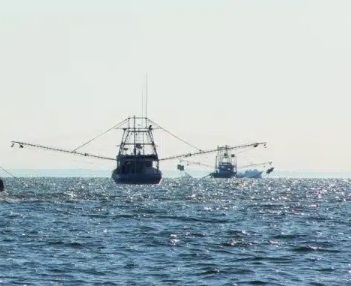
Shrimp season in Mississippi to open on May 22
The Mississippi Department of Marine Resources (MDMR) has set the opening date for the 2023-2024 shrimp season in state territorial waters for Monday, May 22 at 6 a.m. All regulations of the MDMR will be in full force and effect, and all boats engaged in catching and transporting shrimp from Mississippi waters must be licensed or permitted by the agency before beginning operations. Staff will continue to sample prior to the opening date. The shrimp season opening date may be postponed if sampling indicates movement of large numbers of juvenile brown shrimp into this area. >click to read< 13:04
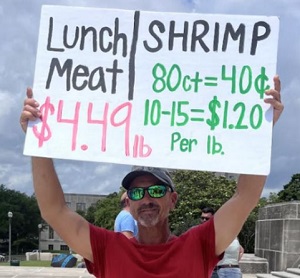
Shrimpers gather at La. capitol to protest rising prices, falling profits
Dozens of local fishermen and women gathered on the steps of the State Capitol Thursday morning to voices worries over the low prices of freshly-caught shrimp and their competition with imported seafood. “Inflation went up, shrimp’s down, can’t even afford fuel to go out,” one protestor said. “We shouldn’t be [at the Capitol] right now,” said fisherman Gareth Leblanc. “We should be working.” His brother, Lanvin Leblanc, is a 65-year-old fisherman who has been working in Louisiana waters for 25 years. Lanvin said that if prices stay up for another year, it could be too late. >click to read< 10:35
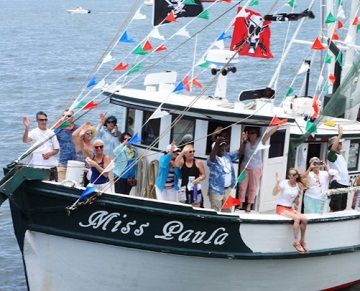
A windy celebration: The 36th annual ‘Blessing of the Fleet’ and seafood festival
It was the 36th annual Blessing of the Fleet and Seafood festival in Mount Pleasant Sunday. The events bring nearly 10,000 seafood lovers together to enjoy local shrimp and fish. The Blessing of the Fleet is how the town of Mount Pleasant sends good wishes to local shrimpers. “What we’re here for is to ask God’s blessing on their shrimpers and families,” said Mount Pleasant Mayor Will Haynie. “It’s hard work, they’re out there in bad weather and good weather and they bring us the best shrimp in America.” >click to read< 08:50
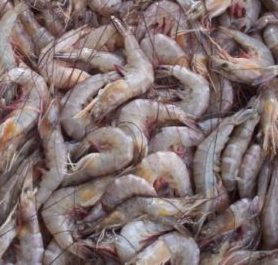
Shrimpers and environmentalists oppose growth of LNG export facilities
LNG export facilities are heralded as good things to come and economic game changers, but there are still fishermen and environmentalists who fight the massive industry. They went before the Louisiana Shrimp Task Force on Wednesday. Many local commercial fishers and environmentalists remain firmly against the LNG facilities and they took their fight to the task force. Fisherman Travis Dardar said in Cameron they are surrounded. He said he lives within four hundred feet of Venture Global. “The areas I’ve got marked in red are where we fish. They built on top of all our fishing grounds out here. The little red ‘X’ on this side is where I live. Now conveniently, Cameron has no zoning, so they don’t have to buy us out. They can absolutely build around us,” Dardar said. >click to read< 08:50
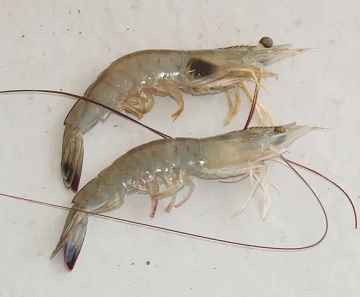
Black Gill: Shrimpers and scientists collaborate to study parasite
Georgia’s shrimpers are already facing plenty of challenges like high gas prices, inflation and international competition. But climate change is exacerbating a new problem: black gill, a parasite that is decreasing shrimp populations and is worsening with rising ocean temperatures. On Dec. 15, the University of Georgia’s Skidaway Institute of Oceanography invited shrimpers, researchers and other local stakeholders aboard the R/V Savannah to collect samples in the Wassaw Sound and discuss the current research and on-the-water observations of black gill. Black gill is a parasite that lodges itself into shrimps’ gills and feeds on that tissue. It’s a ciliate, a single-celled organism. It gets its name from the shrimp’s immune response to the invader, which turns the gills black as the shrimp’s body tries to fight off the intruder. Photos, >click to read< 10:37
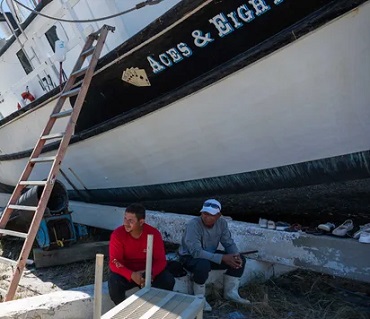
Hurricane Ian: Shrimpers rode out the storm on boats. Now they’re left without work
The F/V Aces and Eights precariously perch on land near the Trico Shrimp Co. in Matanzas Harbor. Under the shadow cast by the shrimping boat’s black and white hull, sailors Oriel Martinez Alvarado and Javier Allan Lopez took a breather. The shrimping industry’s long history in Fort Myers Beach, the largest commercial shrimping fleet in the Gulf of Mexico, came to a crashing halt as Hurricane Ian’s storm surge tossed around massive boats like bath toys, most of them now stuck on land. During the storm, Martinez and Lopez worried that the boat they were on, the F/V Miz Shirley, might sink. So they crossed onto the F/V Big Daddy with two other sailors. But now, Martinez, Lopez and other shrimpers are out of a job indefinitely. Photos, >click to read< 17:31
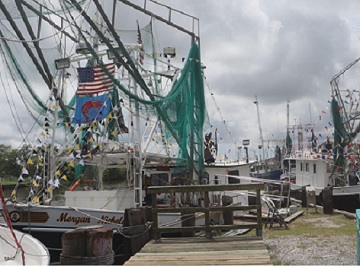
Delcambre Shrimp Festival
The town of Delcambre held its annual shrimp festival after nearly a two-year hiatus. This will be Delcambre’s 70th year hosting shrimp festival. Now the fall shrimp season began Monday off Louisiana’s coast. Though many in Delcambre are excited, they can finally feast on the pounds and pounds of shrimp that make its way through Delcambre for this festival. The event also helps celebrate the town’s shrimp industry, which employs many residents. In 1950 the first shrimp festival was held in Delcambre and has been a staple for the community ever since. >click to read< 18:16
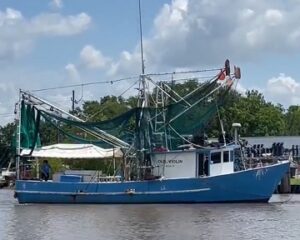
Louisiana shrimpers worry high diesel fuel prices will impact profits
Shrimpers are getting ready to cast their nets, but not without major concerns for the upcoming season. Rising fuel prices could also mean higher prices for the tasty crustaceans. “I know we are going to get hit hard by the fuel prices… You better catch a lot of shrimp,” said Cheryl Granger, owner of Granger’s Seafood in Maurice, La. “I think we’re going to have a very hard time,” Granger said. “Very hard and not just us, the crabbers, the shrimpers; everybody fishing on the water.” >click to read< 08:06
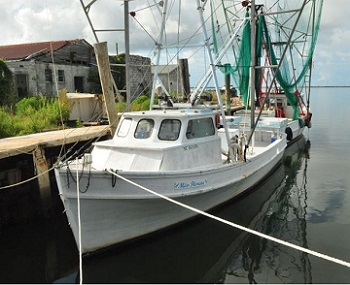
Partial Bogue Sound shrimp trawling ban will have impacts on watermen, economy
Mike Norman, who owns a 35-foot boat and sells shrimp at Norman’s Shrimp in Salter Path, mostly in the summer, said the partial Bogue Sound shrimp trawling ban will have a significant impact, and he believes it’s just the beginning. “They (sports fishermen) got Bogue Sound this year and I guarantee you that in the next couple of years, they’ll get Core Sound and Straits and Adams Creek,” he said. “I’ve been doing this since I was 16 and I’m 61 now. My brother told me the other day I’m going to have to get a job. But that’s hard for a commercial fisherman.” >click to read< 17:58
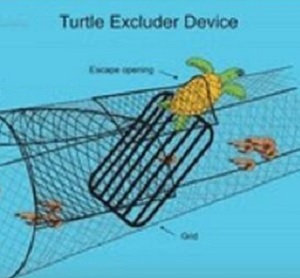
NOAA: Temporary rule allows shrimpers limited tow times as an alternative to TED’s
NOAA is publishing a temporary rule to allow shrimp fishers to continue to use limited tow times as an alternative to Turtle Excluder Devices. According to LDWF, the use will be in specific Louisiana state waters from 91° 23’ West longitude eastward to the Louisiana/Mississippi border, and seaward out three nautical miles. The temporary rule is effective from December 7, 2021 through January 5, 2022. >click to read< 12:02
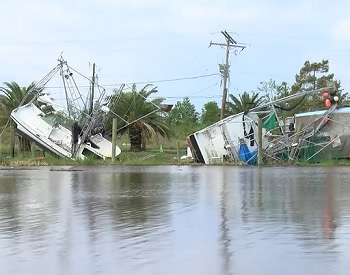
‘We take care of each other’ – Volunteers head to Lafitte to help hard hit residents and fishermen
After Hurricane Ida pummeled Lafitte, the fishing town’s fishermen pledge to keep going. The storm destroyed many of their boats, docks and homes. Volunteers distributed 500 meals to the fishing town’s workers and residents. “When someone, a stranger, shows up to lend you a hand, it gives you that little bit of a lift you need emotionally to get back out there to keep fighting and rebuild your life,” >click to read< – Volunteers head to Lafitte to help hard hit residents, and fishermen – Dozens of boats have been damaged or destroyed, and many wonder if the help will arrive before it’s too late. .,, While the food should help fuel recovery workers, homeowners, and shrimpers still have big needs “I lost my house, my boat, crab traps, I lost everything,” said crabber Nathan Fabre of Lafitte. Video>click to read< 13:10
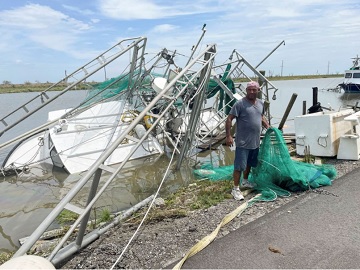
Louisiana shrimpers ‘try and survive’ after Ida sinks boats, destroys homes
Some 20%-30% of the fleet of shrimp boats in the Golden Meadow region of was wiped out by the powerful winds from the Category 4 Hurricane Ida that made landfall on Sunday, shrimpers said. The industry had already suffered lower seafood demand during the COVID-19 pandemic. Then the storm struck fishing communities southwest of New Orleans that had largely been spared when Hurricane Katrina pummeled the state 16 years ago. “We’ve never seen anything this powerful around here before,” said shrimper Russell Plaisance. Plaisance said local shrimpers lost 65%-70% of their revenue in 2020 as the pandemic shut restaurants. This year had been looking up for the top shrimp harvesting state, until the storm. >click to read< 19:04






